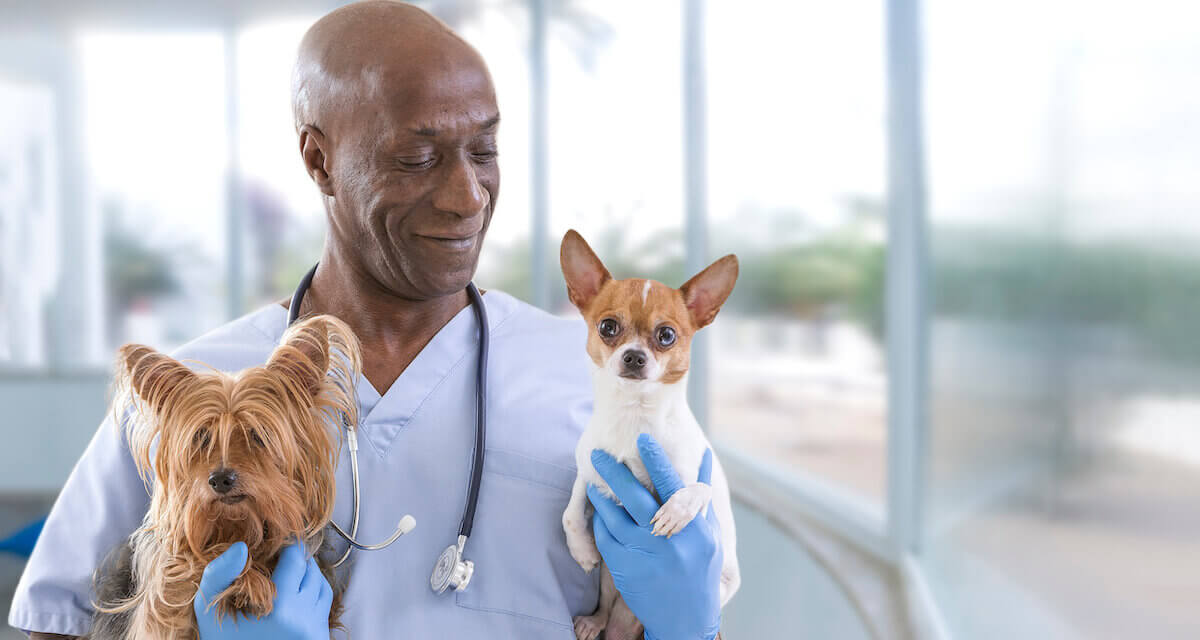Frequently Asked Questions
-
What is compounding and why is it beneficial over medication that’s commercially available?
Commercially available medications are often limited in the dosages, flavors and forms offered. That can be a problem for animals that get anxious when having to get an injection, that gag or vomit up pills or that lick up their topical medication in seconds.
That’s why caretakers need options. Veterinary compounding is the process of combining, mixing or altering ingredients to create a custom medication that’s tailored to meet the needs of an individual animal. Whether an animal requires a specific dosage, form (oral, topical, injectable, etc.) or ingredient that isn’t commercially available, compounding is a way to help ensure treatment can be administered easily and effectively every time.
-
What animals do you serve?
Our animal patient population includes:
- Aquarium animals
- Birds
- Cats
- Dogs
- Exotics
- Ferrets
- Guinea pigs
- Horses
- Rabbits
- Rodents
- Snakes
- Zoo animals
-
As a veterinarian, how can SaveWay help my practice better serve our patients’ pets?
When you work with SaveWay, you’re able to offer your patients customized options for administering medications that they often can’t easily get elsewhere. Whether they prefer pills, liquid or something different, we’ve got you covered.
-
How many different dosage forms does SaveWay offer and what are they?
We offer 11 dosage forms, they include:
- Liquids
- Capsules
- Mini tablets
- Tablets
- Treats
- Transdermal gels
- Suppositories
- Topicals
- Injectables
- Ophthalmics
- Otic Solutions
-
Can SaveWay ship directly to a pet owner’s home?
Yes! We ship within 24 – 48 hours from the time a prescription is received. Plus, we offer auto-refills, so pet owners never have to worry about running out of their pets’ medication.
-
Why should I work with SaveWay over other pharmacies?
Veterinary compounding gives you the necessary tools to provide pets with what they need for better long-term health. SaveWay is the only 503A compounding pharmacy in Delaware that prepares compounded sterile preparations, and we are licensed in multiple states. We consistently go the extra mile to maintain our Sterile Certification and our high standards have helped us be able to provide unique care for many types of animals for the past 20+ years and counting.
-
How can I get started with SaveWay?
If you’re a veterinary practice, you can get started with SaveWay Compounding Pharmacy by contacting us for more information.
If you’re a pet owner, you or your veterinarian can request a consultation and we’ll work with you both to identify which compounded medication might be right for your animal.
-
What You Can Feed a Dog or Cat with Diarrhea?
When your dog or cat is experiencing diarrhea, it’s important to pay attention to the food you’re giving them. You want to provide the right nutrition without making the issue worse. Some options for safe foods include:
- Bland food (white rice and boiled lean meat)
- Pumpkin
- Boiled potatoes
- Probiotics
There are some cases where your veterinary professional may recommend fasting your pet for 12 to 24 hours. Once your dog or cat is feeling better, it’s important to gradually transition them back to their regular diet over a few days to make sure you don’t trigger their diarrhea again. And always be sure to provide easy, consistent access to clean water so they don’t end up dehydrated.
-
How Do You Prevent Diarrhea in Dogs and Cats?
To prevent diarrhea in your dog or cat, you’ll want to take proactive measures to maintain their well-being, including:
- Balanced diet and hydration
- Regular exercise
- Parasite prevention
- Up-to-date vaccinations
- Minimal stress
- Regular vet visits and dental care
Ready to give your animal the best possible care?
Just fill out this short form and we’ll get back to you as soon as we can. We’ll help you take great care of your animals.
